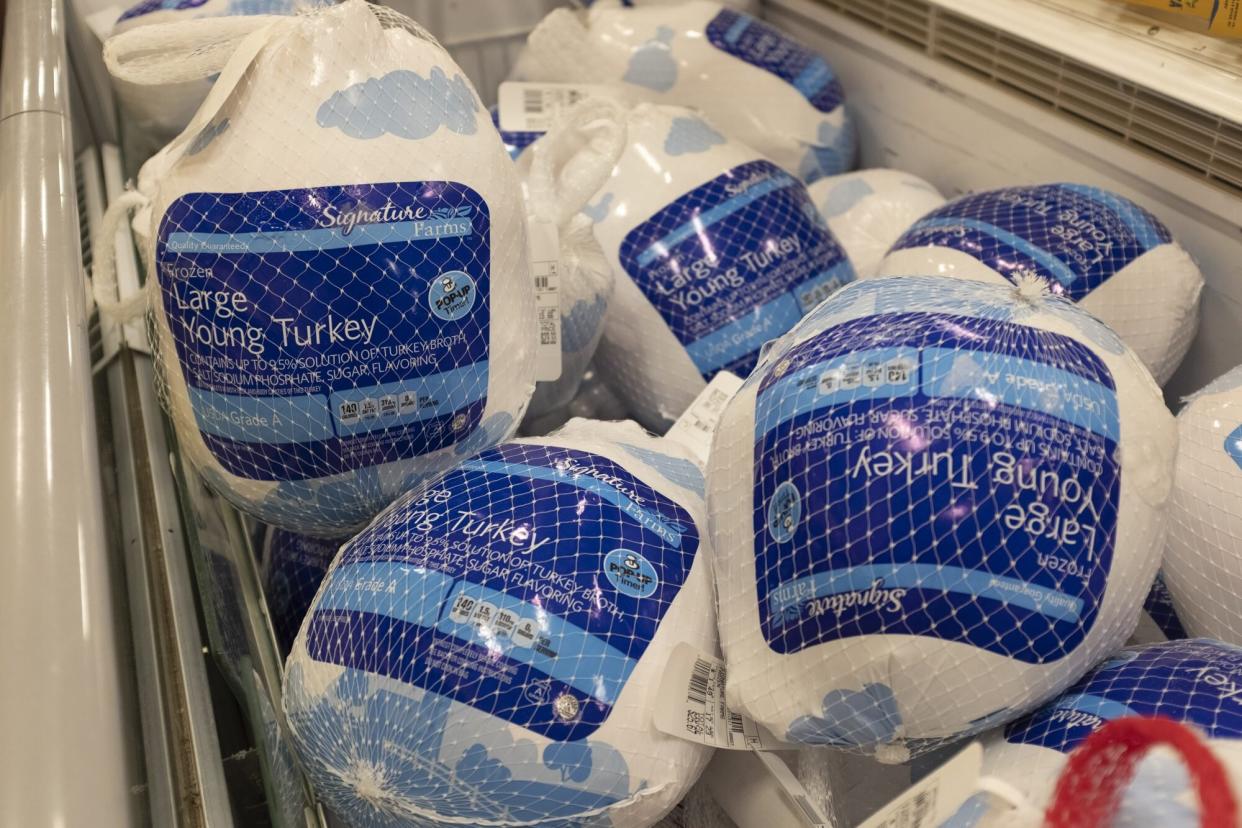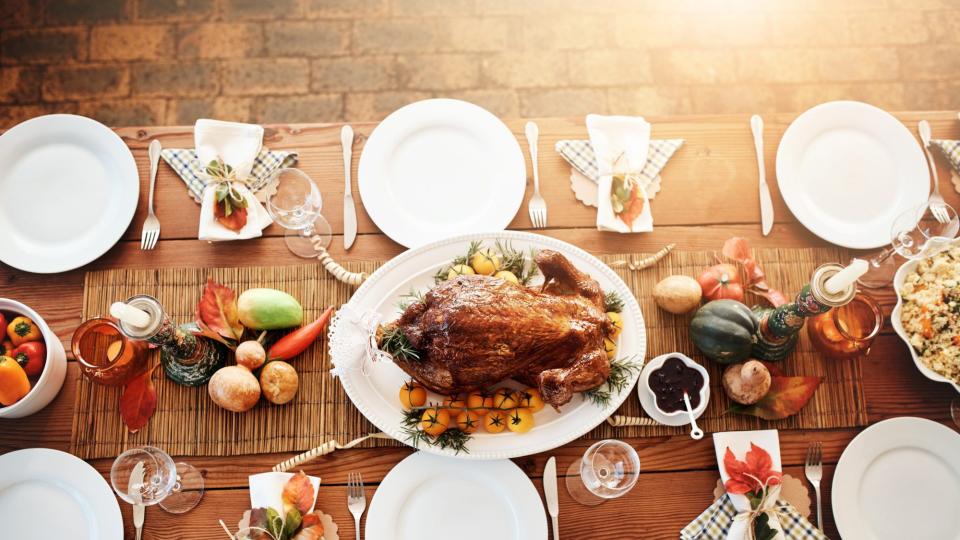Expect Thanksgiving Dinner Shopping Challenges, Thanks to Supply Shortages and Rising Food Costs

Yichuan Cao/NurPhoto via Getty
It's not even November yet and already, planning Thanksgiving Day dinner just got that much more stressful.
According to multiple new reports, widespread supply-chain challenges stemming from the coronavirus pandemic have led to high grocery prices and worsening out-of-stock rates for a variety of staples in Thanksgiving Day meals.
That means that checking off items on a grocery list is going to cost shoppers more than usual, and many items might be tough to track down.
The price increases are all around, too, market analysts told The New York Times.
Turkey, typically at the center of any Thanksgiving spread, has gone up so much that the price per pound is likely to surpass $1.36, the benchmark set by the Department of Agriculture in 2015. (Frozen birds between 8-16 lbs. already cost 25 cents more per pound than they did a year ago, the organization said.)
That up-charge can be traced back to the price of corn, used to feed the turkeys by commercial farmers, more than doubling between July 2020 to July 2021, the Times reported.

RELATED: Thanksgiving Turkeys May Be in Short Supply This Year: 'The News Is Not Promising'
It's not just the turkeys in trouble. "Nearly every component of the traditional American Thanksgiving dinner, from the disposable aluminum turkey roasting pan to the coffee and pie, will cost more this year," agricultural economists, farmers and grocery executives told The Times.
Canned cranberry sauce will cost more because China's new environmental limitations on steel plants have made prices more than 200% higher than before the pandemic, The Times reported. Domestic steel factories, meanwhile, are still catching up on production after lockdown.
Commercial bakeries have also seen the amount they spend on ingredients rise, which means things like packaged dinner rolls will be pricier than usual, the outlet added.
Blame can be placed all around, from inflation and high transportation expenses to labor shortages, supply chain backups, and economic trade policies.
Even weather is playing a factor, The Times said — like Hurricane Ida, which shut down cane-sugar refineries in the South, or this year's severe drought, which impacted the country's Brazil's production of coffee (yes, coffee will be harder to find and more expensive too).
RELATED: Americans Have Already Started Planning Their Thanksgiving Dinners, Survey Finds
Cost increases are one thing, finding products are another.
According to a report by CPG market researcher IRI, the latest data from its supply index shows that stock on many products in the Thanksgiving-related food categories are running low.
In-stock rates for refrigerated and fresh-baked pies are all down between 5-11% since last year, IRI reported, as are the availability of frozen pie/pastry shells and whipped toppings. Costs for all those items are 6% higher than they were last year.
Liquid gravy might be the hardest to get. IRI says it has the lowest in-stock rates, down 11% from a year ago and 9% from the last two months.
And of course, basic supply and demand means that shoppers shouldn't expect major holiday promotions. IRI's promotion tracker indicates that fewer discounts and deals will likely be made to customers this year. In fact, IRI reports that retailers are running 1% to 9% fewer promotions on Thanksgiving items now as compared to the same period last year.
RELATED: CDC Says Vaccinated People Should Still Wear Masks During Holiday Season to Minimize COVID Risk
All of this coincides with the increase in the number of Americans getting the COVID-19 vaccines, which are leading to losening health guidelines. Experts tell The Times that after restricted holiday celebrations in 2020, this year is expected to see more families gathering than before.
That's going to lead many families to stretch their shopping budgets, at a time when the economy is still bouncing back from the pandemic.
"I can buy that this will be the most expensive Thanksgiving ever, but there's an income-inequality story here that matters a lot," Trey Malone, an agricultural economist at Michigan State University, told The Times. "The rich are going to be spending more on Thanksgiving than they have ever spent before, but not everyone is going to be able to do that."

